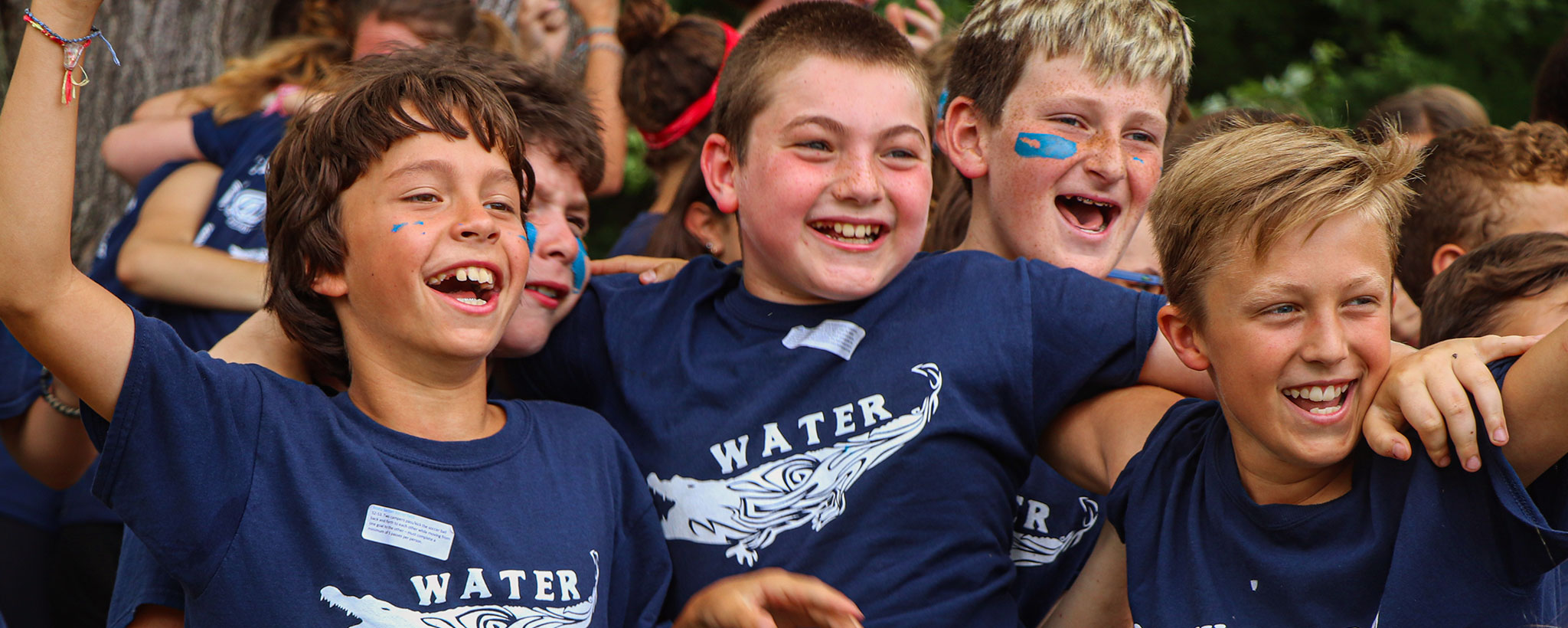I’ve written about Dr. Mogel’s Blessing of a Skinned Knee before… and most likely will again. The work she put out into the world is useful and applicable, regardless of what is going on in the culture around us. But that’s not exactly what I’m thinking about today.
I’m thinking about homesickness and how thinking about a future ‘skinned knee’ can help.
Missing Home is Real
Let’s the obvious thing out of the way – the vast majority of kids will miss home at some point while at overnight camp. It doesn’t matter if you are at Weequahic or some other great camp in Wayne County or North Carolina or California.
How campers experience these very normal missing home feelings will differ. Some will hold it in and ‘soldier on.’ Others will let all the feeling hang out for everyone to see. It may happen when you in the Health Center, getting ready for bed or even walking back from the waterpark.
One thing that is consistent across campers: looking back on them, these feeling always seem much bigger than they actually were.
This is a normal reaction. If our brains hadn’t developed this habit, we humans wouldn’t have made it past the sabertooth tigers in our past. Being overly aware of negative, potentially dangerous things is important!
The problem is that now the vast majority of risks that could have done us harm thousands of years ago aren’t around… but that warning system in our head is still really, really good at blowing bad feelings out of proportion.
That’s why the future skinned knee idea is so important.
The Lesson of a Future Skinned Knee
I had a great conversation with a younger camper the other day. He was concerned about coming back because he had missed home ‘a couple of times’ last summer.
I get it. Those feelings are big! And… there is always more to the story. When I asked him, he had missed home when he was feeling sick one afternoon and one other time. But, he loved camp… kept saying that over and over.
I believed him – I saw a guy last summer having a blast! He wanted to come back but didn’t want to feel sad again.
When I asked, he agreed that he felt sad for maybe 5.5 hours over the course of the three weeks, most of it coming when he felt sick.
“Jorge (not his real name), you love baseball, right?” I asked. “Sure do.” “Ok, think about playing a game tomorrow. If you knew right now, without a doubt, you’ll skin your knee during the game tomorrow, would you still play? It would hurt, it would be real… and you’d get to play the game you love.”
“Sure, I’d still play,” he said to me almost incredulously.
“Well, Jorge… it’s the same thing with camp. You know you are going to miss home. It’s going to be real and not feel great… for a little while. But you still get all the other good things, too.”
Balancing the Future and the Past
We all have bad experiences in the past. Someone was mean to us, we scrapped a knee. Those are real hurts and can affect our future… if we let them. The challenge is to imagine those possible or certain future hurts and weigh them thoughtfully about the good we’ll get even when dealing with the bad or difficult.
I know enough now that, though I don’t want to exercise all the time, I feel better after having done so. I also know that, even though my son’s piano recital or football game may not go perfectly, I’ll have so much fun watching them play.
Campers, when you think that missing home will hold you back from going to camp, I completely understand. It’s a real, honest feeling. Just do me a favor: think about all the fun you’ll be missing and then make a decision.
Just an idea from a future skinned knee. Have a great weekend!


